Something that is so important for all children is to have the language to talk about their experiences. One way in Deaf Education that we try to support this is by engaging in language experience activities – in the classroom, the teacher engages students in an experience, and then supports them as they discuss the experience by providing new vocabulary that might be useful. This can all of course be tied to literacy, as these experiences can then be written about, and this writing shared with peers.
Dr. Baker, in her Language Development and Deaf/Hard of Hearing Students class, had the opportunity to bring her undergraduates to a Deaf Education classroom where they planned and implemented their own language experience activities! Two of them agreed to write about this experience!
“Our Language Development class has been learning how to prepare Language Experience Approach lesson plans and we decided to try out a lesson on the five sense at Wright Elementary! I was in charge of the station that addressed the sense of touch! I created a folder that had various materials for each student to touch (Leather, Fleece, Feathers, Burlap, etc.). It was so much fun to see all the children’s eyes light up when they saw this very interactive activity! LEA’s are a great tool to help student learn new vocabulary terms in a manner that seems fun and playful! I had never worked with children this young before and it was very exciting to see how happy they were to see all the various items they got to put their little hands on! It was fun to show the children new signs such a soft, bumpy, and rough! I was so happy that I got to work with these cuties! I cannot wait to work with younger children again!” – Tonya North, Deaf Education major, junior
“Preparing for this LEA took place in Dr. Baker’s Language Development class each class was split into groups and given the responsibility of preparing their own LEA for Wright Elementary. The LEA that my group decided to present was “The 5 Senses” because there was 5 individuals in our group we were able to each split a ‘sense’. I chose smell, because I thought it would be fun to work with the children and practice facial expressions caused by the different smells.I taught them four different smells including; sweet, cinnamon, fresh/clean, and a dirty smell ( I used an old pair of socks for this example).I learned that patience is required when teaching Deaf or hard of hearing children and that not all children learn the same. This experience was very beneficial. I think LEA’s are extremely important because the children are allowed to learn hands-on and I feel as if LEA provide a different teaching technique that the children find extremely interesting. My overall take on this experience is that it was a fun and exciting way to interact with the children and it was fun to watch them learn and react differently to the LEA. At the end of the observation I was not ready to leave because I enjoyed just being around these children and playing with them and watching them learn. All children want to learn and it was so exciting to see these children commit to the LEA. I’ve personally been back in forth on whether to pursue this career field but the moment I’m around these amazing Deaf children I find myself with so much joy and passion all because of them, the more I’m around the Deaf community the more and more I fall in love with this Culture. It was an overall life changing experience and I can’t wait to see where it takes me.” – Kadan Brady, Deaf Education minor, senior
![photo 3[1]](https://deafedtu.files.wordpress.com/2014/05/photo-31.jpg?w=225&h=300)
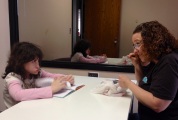
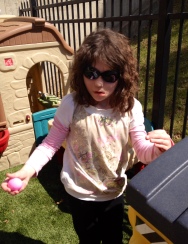
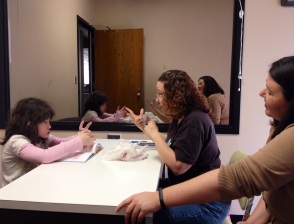
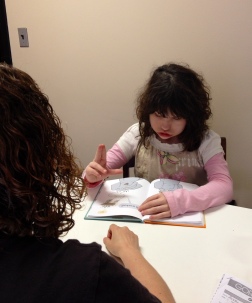
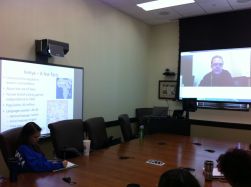
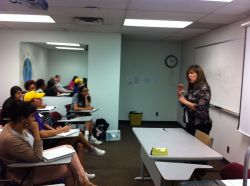
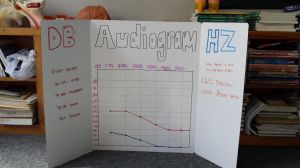
![photo[1]](https://deafedtu.files.wordpress.com/2014/03/photo11.jpg?w=217&h=300)
